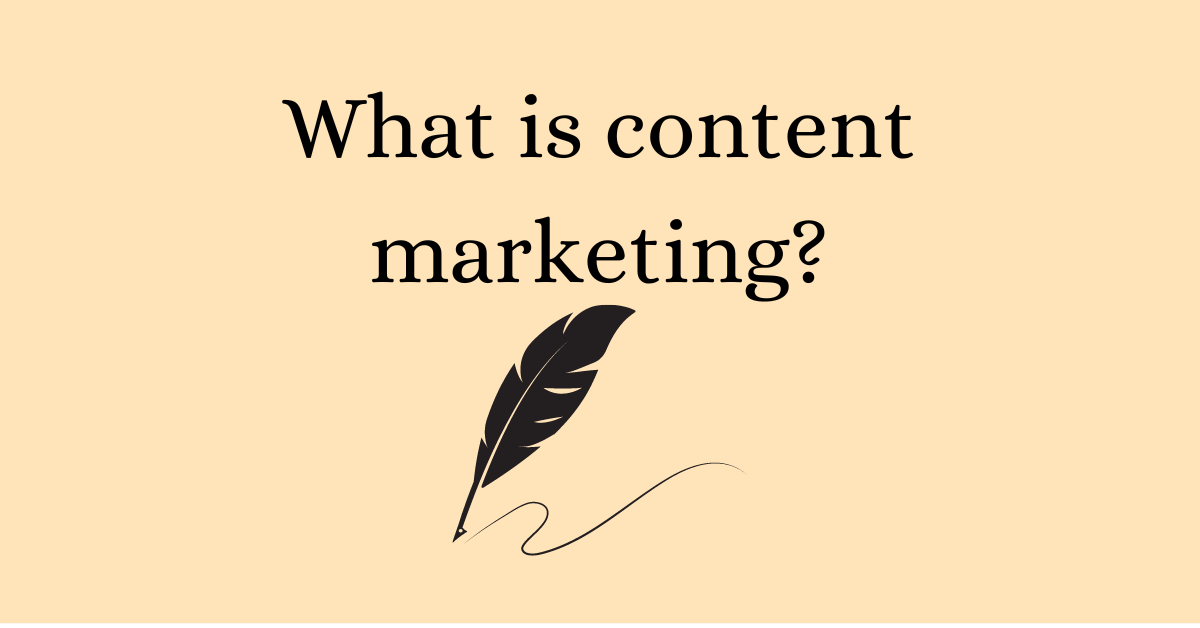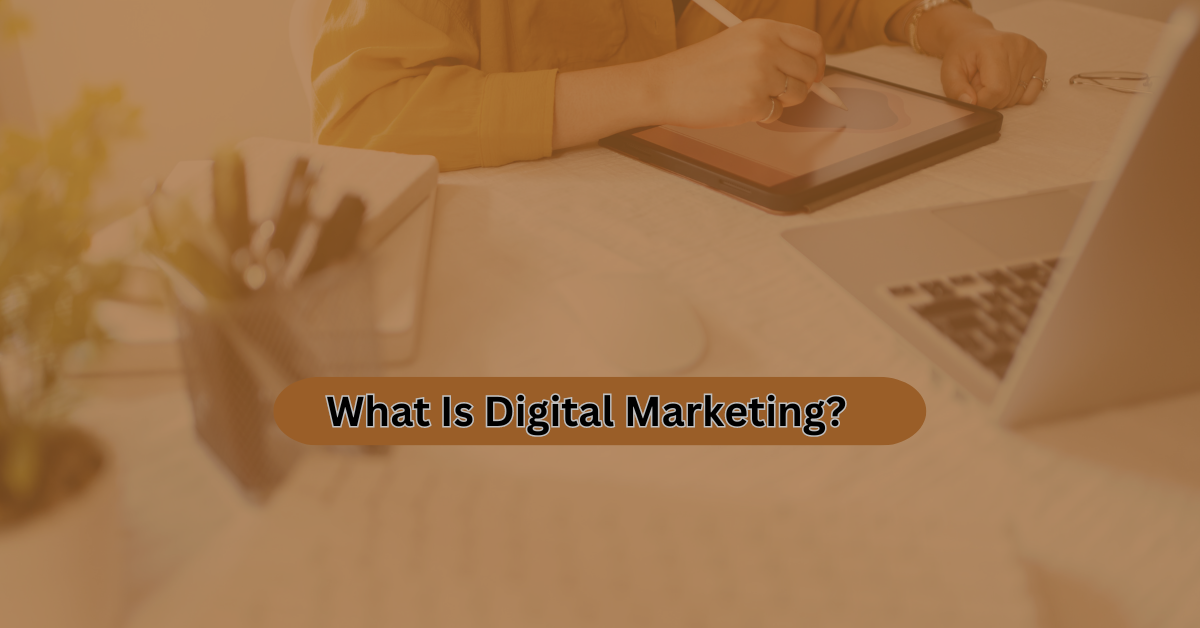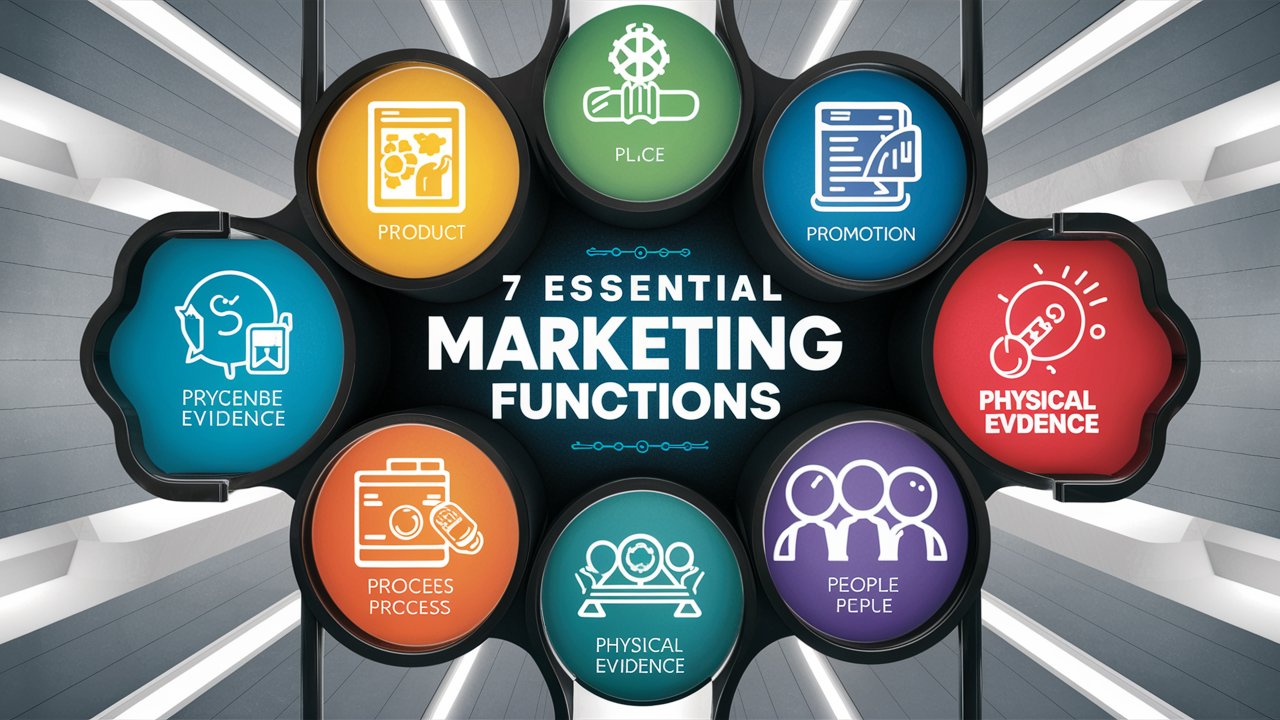
In the current digital era, social media marketing has grown to be a crucial component of any successful company’s growth plan. 4.8 billion people use social media globally, accounting for 92.7% of all internet users and 59.9% of the world’s population.
In the upcoming year, there will be a lot of chances for business growth. Development if social media marketing tactics like data analysis, paid advertising, content generation. Business page optimization are put into practice.
Studies reveal that 51% of customers decide to visit a company after having a good experience with them on social media. Because of this, in order for businesses to reach this client demographic in 2024, they must build and grow their social media presence.
5 Tips to Effectively Use Social Media Marketing
In addition to increasing brand recognition, social media marketing that works may promote two-way contact with target audiences, increase website traffic, and increase sales conversions.
Emerging technologies like influencer partnerships and live streaming will provide brands new and creative ways to promote themselves in the coming year as the social media scene continues to change.
We will go into the significance of social media marketing strategies. How they can help organizations achieve enormous reach, engagement, conversions, and sales in this in-depth tutorial.
The Importance of Social Media Promotion
Because social media platforms cover a wide range of demographics and geographical locations, social media marketing has become increasingly important in the current digital era. With more than 4.8 billion people using social media, it is now crucial for brands trying to grow their customer base.
Because it may promote discovery, engagement, and conversions at comparatively lower costs than traditional marketing channels, social media marketing is important. Through social media, brands may reach a wider audience and be found both naturally and through paid advertising.
Through content display to interested user groups, platforms such as Facebook and Instagram allow businesses to generate relevant traffic and lead generation. Additionally, social media facilitates more interactive participation from brands and audiences.
Features that promote two-way communication, connections, advocacy, and community development include comments, shares, polls, and live streaming. Additionally, this interaction may yield insightful customer data that will support marketing plans.
Social media is important since it has the ability to monitor and immediately affect sales and conversions. Not using social media increases the danger of missing out on opportunities to interact with target customers, especially since automation and personalization are predicted to increase its importance. In the upcoming years, marketing techniques will still be heavily influenced by the media.
8 Arguments in Favor of Social Media Marketing for Entrepreneurs
For business owners, social media marketing is crucial for the following 8 reasons:
1. Boosts recognition and awareness of the brand
Building a strong brand identity and recognition in the contemporary marketplace is essential to differentiating your company from various rivals. To prospective clients, it communicates purpose, quality, and trust.
As value prepositions become more apparent, strong brand impression also corresponds to increased conversions, revenue, and growth. This is the critical juncture for social media marketing.
Gaining recognition for a brand on social media has advantages.
- natural expansion to larger audiences
Thousands of users utilize social media every day to connect to platforms such as Facebook as well as Instagram. Sharing interesting, pertinent branded material regularly and naturally helps promote discovery outside of geographic bounds.
For instance influencer marketing increases its reach rapidly.
- Improved consumer insight
The monitoring of brand mentions and discussions across social media channels can provide a wealth of non-filtered information about consumers, from feedback on products to expectations about customer service. These insights can be used to tweak branding strategies, positioning, and customer experiences efficiently.
- Trust and perception of credibility
Social media presence on a regular basis shows transparency, responsiveness and prompt customer service to our current customers, which creates confidence and trust of the company. The positive experiences that consumers share are also a sign of credibility, which sets brands apart.
- Enhanced brand positioning
Social listening can help assess the current positioning of brands and the gaps in your desired positioning in real-time. Create brand-specific content and messaging that communicates the desired values of the brand and personality, as well as emotions and distinctiveness to get more customer attention.
2. Creates prospects and leads.
The main goal of all social marketing strategies for media is to ultimately result in measurable business outcomes, including higher quality leads as well as sales. If they aren’t generating enough return on investment in social media by converting tangible leads the scales of reach or engagement metrics will have little impact on financials. The ability to track sales conversion performance is essential.
The benefits of driving leads and sales using social media
- Expanded Audience Reach
The huge users of platforms such as Facebook and LinkedIn lets brands focus on niche audiences which are more likely to be converted into customers based upon their preferences, intent signals and their demographics. An increased reach will result in that conversions are made at a scale.
- Measurable Conversion Tracking
Analytics tools that are available within social platforms track macro and micro conversion metrics such as landing page visits as well as email subscriptions purchase, content downloads and more. This allows the improvement of conversion funnels in order to get greater return on investment.
- Seamless Lead Capture
Forms for lead generation that are built-in and integrated with lead ads let you capture contacts without having to leave websites and social apps making conversion easier by incorporating sales enablement functions.
- Boosted Website Traffic
Social media shares from users organically and also paid traffic on a continuous basis bring new visitors to the websites of brands as well as other channels owned by brands. This boosts overall visit and conversion probability, particularly when it comes to long-tail purchases across channels.
- Consumer Trust and Loyalty
Potential customers who are referred by loyal customers on social platforms are open to messages from brands that increase trust. The intention to purchase gets an increase over visitors who are not known. increases the likelihood of conversion and the value of a customer’s lifetime.
3. Market insight
With the popularity of social media continuing to increase, platforms such as Twitter, Facebook, and Instagram have evolved into huge digital databases of unfiltered and actual-time data about consumers. This data can provide valuable market insights that help make strategic business decisions to compete with competitors.
The benefits of using market information from social media
- Understanding Shifting Consumer Needs
Examining user-generated content, such as reviews, social conversations and questions can reveal changing consumer preferences, issues and demands. Brands can spot weaknesses in their product’s features and positioning, and adjust accordingly based on market research.
- Optimizing Marketing Campaigns
Events, special days or trends that are gaining attention through social media can provide messages that appeal to targeted audience. This type of insight helps create relevant and original content that will garner more engagement and higher conversions.
- Informing Product Innovation
Social media posts about new products or features suggest the possibility of new features that will delight those who purchase from them.
For instance, the emergence of AR filters prompted brands to integrate the technology into digital experiences. Such marketplace signals guide product roadmaps.
- Lowering Customer Acquisition Costs
Recognizing the formats of content as well as the tone of messaging and the best positioning to drive positive engagement can save trial and error as well as enhancing the targeting of your audience. Market insights lead to less cost to acquire customers and increases Rol.
4. Creates the concept of thought of leadership
Establishing subject matter experts from an organization as thought-leaders through social media channels can have enormous brand building value and potential for conversion. It increases credibility, trust and also generates demand over time.
The benefits of creating thought leadership in Social media
- Authority Building
Sharing content that is educational, views as well as trend analysis and forecasts as someone who has been there establishes their personal brand and authority as a trustworthy source of information. This increases the number of followers who are a qualified base.
- Lead Generation
People who are drawn to this insight and knowledge are probably already attracted to the content and are likely to connect or convert. Content that is thought-provoking drives targeted, yet highly well-qualified online traffic to continuously generate leads.
- Customer Retention
Customers who are already customers feel more connected with brands and feel more invested in who’s thought-provoking content they read and interact with frequently. This improves retention rates and the potential for upselling.
- Competitive Differentiation
Demand for long-form educational content is on the rise among consumers Consistent thought leadership sets companies apart from those who are unable to put resources into. It is a reason to pay for expert knowledge.
5. Enhances SEO and site traffic
Although social media sites provide excellent opportunities for engaging viewers, the main objective is to direct users to the brand’s websites for conversions. Social media efforts have a major impact on search rankings and direct traffic. When making investments in SEO, and boosting traffic can be beneficial to the company.
Benefits of the SEO of websites and increasing traffic to them through social media
- Improved Domain Authority
The quality of engagement metrics on profiles and social posts (likes comments, likes and shares) provide credibility and authenticity to search engines, thereby increasing the authority of a domain. Sites with more authority are able to achieve more organic rankings.
- Lower Cost Per Acquisition
Higher organic rankings reduce the need to spend in paid advertisements that drive traffic. Together with the ubiquitous reach of social sharing and lowering the cost of marketing per client acquisition significantly.
- Expanded Brand Visibility
Finding words that have relevance to terms relating to content. products can increase chances of being discovered by the users. The visibility of your brand and the volume of impressions increase to encourage customers to convert.
- Increased Overall Traffic
An established presence on social media increases referral traffic, and SEO increases the organic search visitors on websites. Together, they increase the number of visitors and improve lead generation chances.
- First Page Presence
A strong domain authority and page metrics boost the probability of securing the coveted first-page positions in search engines, including when it comes to keywords that are competitive. This drastically increases click-through rates.
6. Enables targeted paid advertising
Although organic reach isn’t without its limitations for brands using social media platforms such as Facebook and LinkedIn however, their huge audience provide unbeatable paid advertising possibilities with precise targeting on a large size. Specific targeting of interest and demographics makes sure that messages resonate with the most relevant audience.
The benefits of targeted social media ads:
- Laser-Focused Targeting
Platforms let you target niche variables such as job titles, skill groups, devices and past purchases, as well as location signals, intent signals and more. This kind of filtering targets very specific, but relevant audiences.
- Improving Conversion Rates
When advertisements are designed to match the target audience’s desires and preferences the engagement and conversion rates experience a significant rise. The parameters for targeting are constantly designed to appeal to those who are most likely purchase.
- Saving Advertising Costs
Ads that are targeted reduce wasteful expenditure by displaying content randomly uninterested viewers that are likely to not convert. The use of niche targeting guarantees that each display and click has greater ROI by contacting potential customers.
- Boosting Organic Efforts
Converting audiences who are curated through paid advertisements organically interact and share the brand in a more meaningful way, providing an positive signal to the social media and algorithmic search, which improve SEO and organic reach, respectively.
- Testing Content Performance
Targeting can help test messages creatives, messages, and campaigns across different user groups. Responding to responses can help you make better decisions and make sure that the message is matched the best and is most effective in meeting goals.
7. Increases conversion rates
While many brands focus on expanding the reach of social media and increasing engagement, the most important measure of the effectiveness of the strategies they employ is their ability to increase conversion rates and sales. A higher conversion rate directly increases the revenue and ROI of budgets for social media.
Benefits of enhancing conversion rates for social media
- Stronger Sales Enablement
Optimizing social content to be used for calls-to action as well as integrating tools for conversion, such as lead forms, messenger bots or payment links. allows for seamless and direct customer acquisition without the need for website visits.
- Justifying Marketing Spends
The growth rate of sign-ups for customers or sales conversions permits studying the monetary benefits from investing in social media. It calculates the exact ROI figures to demonstrate the impact of marketing.
- Competitive Differentiation
The higher conversion rates when compared with benchmarks in the industry indicate the efficacy of social media’s customer targeting strategies for engagement, as well as trust in the brand. This distinguishes brands from the rest.
- Higher Lifetime Value
Customers who are a part of social media channels show greater loyalty when following and sharing brands, increasing their purchasing frequency and value over the course of their lives purchase costs.
8. Allows real-time analytics
The measurability inherent and the data-driven nature of the most popular social networks. Like Facebook, Instagram, and LinkedIn give marketers access to precise performance data in real-time. This information is essential to optimize campaigns.
Benefits of utilizing real-time analytics for social media marketing
- Optimizing Content Strategy
Real-time data on impressions, reach and clicks, shares and comments for every post allows you to understand which types of content and formats, topics, and types most resonate with the target audience across all platforms. This improvement improves engagement and converts.
- Improving Targeting and Segmentation
Monitoring the engagement levels and conversion rates for different segments of interest. And demographics helps in creating highly customized message. content specific to each target segment to improve outcomes.
- Benchmarking Performance
Platform data shows benchmarks for industry-wide averages of the engagement rate, click-through rates and conversion rates to compare to rivals, allowing companies to assess the effectiveness of their campaigns.
- Calculating Social ROI
Analytics dashboards track the tangible results from social media ads as well as their value and attribution with precision, as well as by calculating the ROI of ad spending. This improves the efficiency of investment and help budgets.
- Streamlining Ad Campaigns
lets you optimize your the targeting parameters, bids and locations to reduce ineffective ads and improve conversion rates for active campaigns.
How To Leverage Social Media Marketing To Grow Your Business
Conclusion
It is clear that implementing social media marketing will increase in importance for companies by 2024, and even beyond. With the growing adoption of digital technology. The development of social media It is predicted to hit the 400-billion mark of users by the end of next year.
People who adopt data-driven social media strategies to increase organic and paid reach are able to increase their audience and gain an advantage in the market. Particularly, companies must expand their presence on social media on platforms such as Instagram, Facebook marketing, LinkedIn, Twitter, etc.
They should improve their brand profiles, publish regular content that is engaging. Multimedia to build brand awareness, conduct conversion campaigns, encourage discussions, and make use of analytics to make improvements. Live streams, which are emerging technologies, and virtual influencers show potential.
While social commerce features make transactions more seamless messages are delivering better customer service. Combining these two elements in a strategic way will improve the brand’s image. web traffic, lead generation and sales figures.
FAQs
How can marketing through social media make my company make an impression in a highly competitive market?
Through the creation of unique and captivating content, targeting the appropriate target audience, and using analytics to improve strategies Social media marketing can help your company stand out from its competitors.
What role will influencer marketing have in the world of social marketing of businesses through media?
Influencer marketing involves working with prominent individuals on social media to advertise your services or products. This can help companies gain new customers and increase their credibility.
What is the best way to gauge the effectiveness of my marketing campaigns on social media?
Key performance indicators (KPIs) like engagement metrics, growth of followers web traffic, conversion rates are a way to evaluate the effectiveness in your marketing efforts on social networks.
Does it make sense to pay for paid ads via social media?
Although organic reach on social media isn’t as extensive however, investing in paid advertisements can dramatically increase the exposure and reach of your business’s content, which can lead to a faster rate of growth.

I have been in the SEO industry for more than 9 years, with skills and attitude that are geared towards improving the online presence of your website on search engines such as Google and Bing. Currently, I am Margaret Dalton digital working as a Lead Analyst in a Fortune 50 company, and at the same time, I was working as a successful SEO Freelancer to help websites of any sizes to get on top of the search engines.





![[What does SEM stand for]-Search Engine Marketing [What does SEM stand for]-Search Engine Marketing](https://margaretdaltondigital.com/wp-content/uploads/2024/06/a-digital-illustration-featuring-a-modern-office-s-OLMArZUBQd27AKULvDYFTA-8NYm5kz8QAOebtRSeeaDjg-150x150.jpeg)